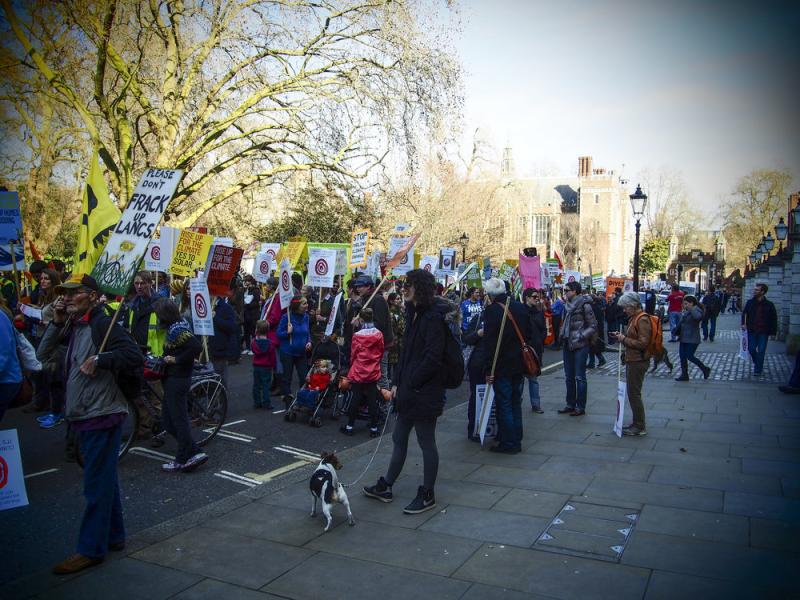There are times when we need to take to the streets to get our voices heard. Protest plays a key role in Friends of the Earth’s history. Many of our campaigns have involved public stunts, community actions and big marches. This is, in part, how we achieve change.
In 2022 and 2023, new laws were introduced in the UK to stifle civil rights movements and suppress our rights to protest on issues like climate change and inequality.
This guide equips you with information about protest law, police powers, and your rights and responsibilities when planning or attending a protest. Please note, it does not constitute legal advice, which must always be tailored to the specific facts of a given case or circumstance.
Northern Ireland protest guidance
Want to know your rights when it comes to protesting in Northern Ireland?
Read this guide to understand what you can and can't do, and learn about your rights before, during, and after a protest under Northern Ireland law.

Remember: protesting is legal and everyone has the right to protest and to express themselves. It may seem like protest is banned altogether, but this isn’t the case.
Why we must protect our right to protest
Watch our Co-Executive Director, Miriam Turner, give a TEDx Talk on how our protest rights are under threat and why we must protect them.
This guidance is based on, and draws significantly from, material from Liberty. We'd like to thank them for this, and for their kindness and support for local action groups. Find out more about Liberty, the actions they take for civil rights and how we can work together. We're grateful to Shahida Begum barrister at Garden Court Chambers for reviewing and editing this guidance.
Disclaimer: this guidance is designed to provide an overview of the types of protest-related offences, the sentences they carry upon conviction, and some practical ways to approach organising and participating in a protest. It does not constitute legal advice, which must always be tailored to the specific facts of a given case or circumstance. It’s also important to note that some of the offences described in this document are very new, with few or no prosecutions relating to them to date.

